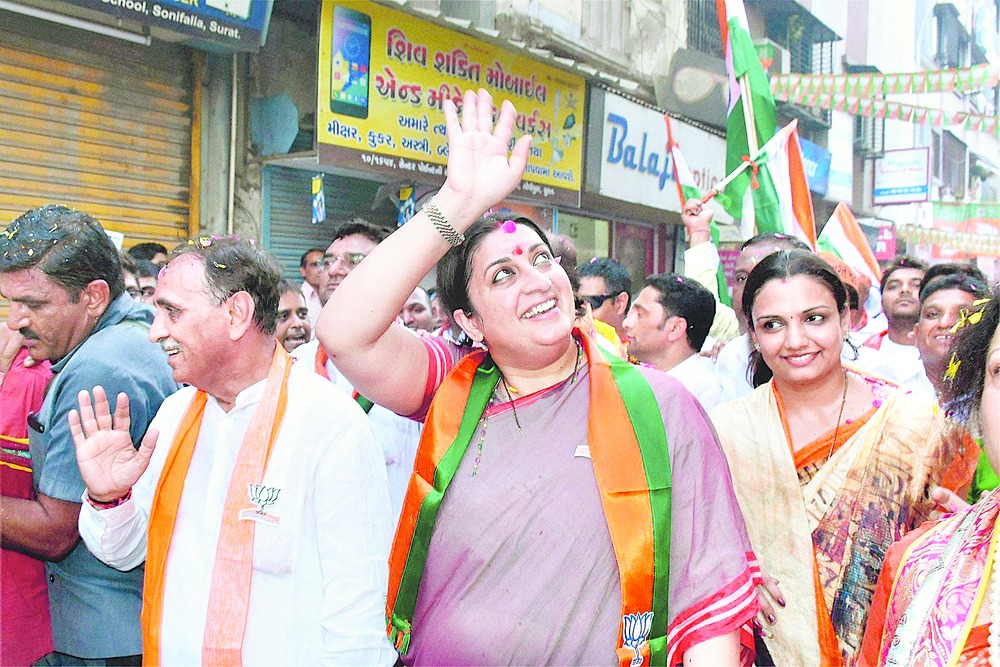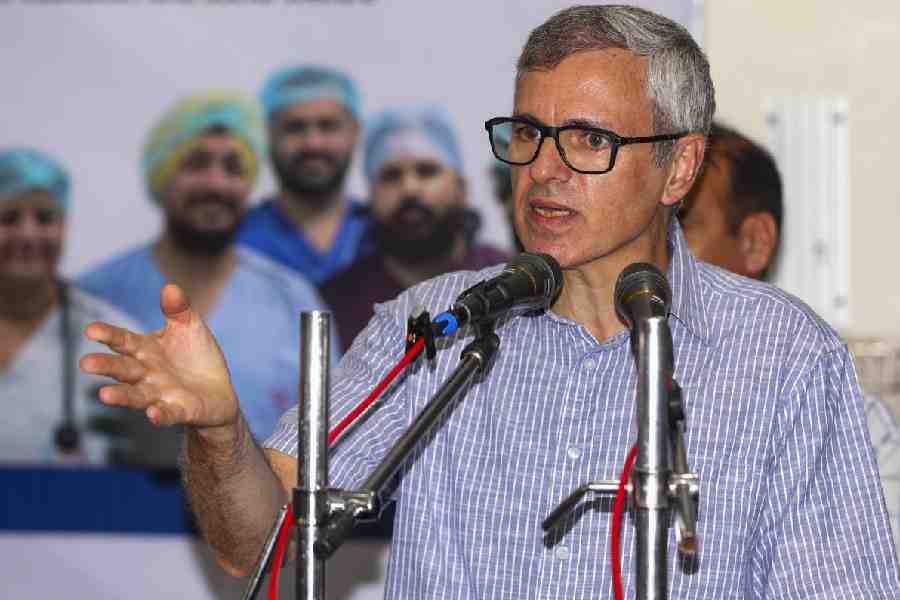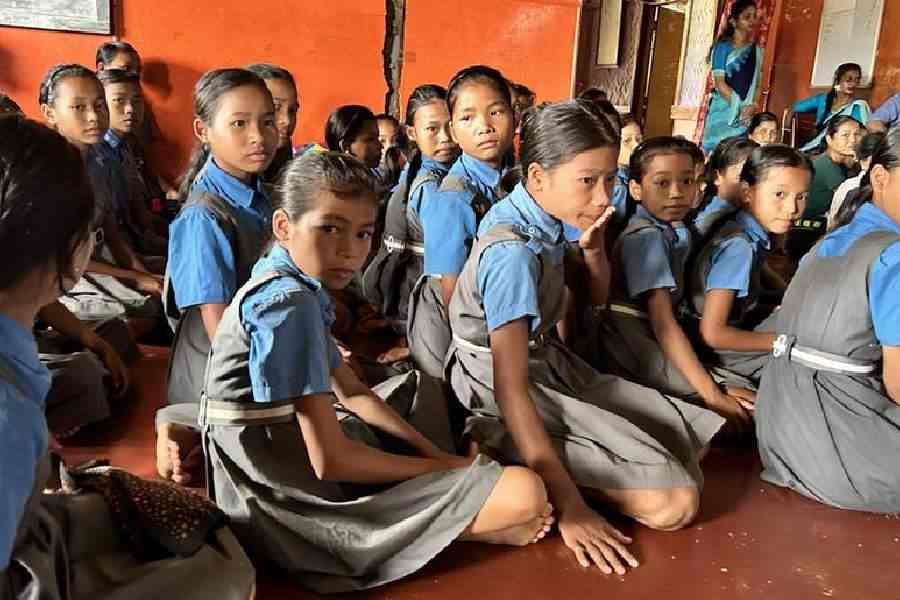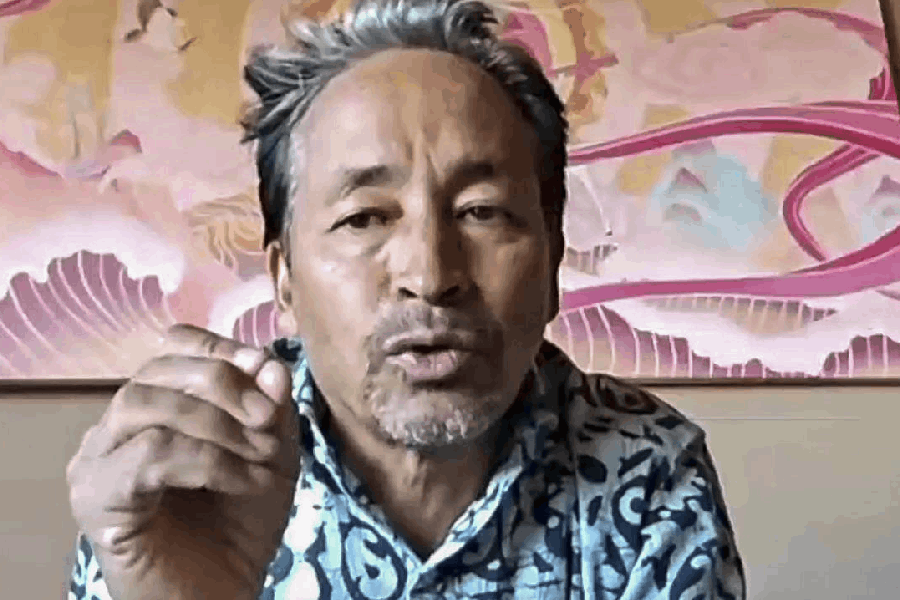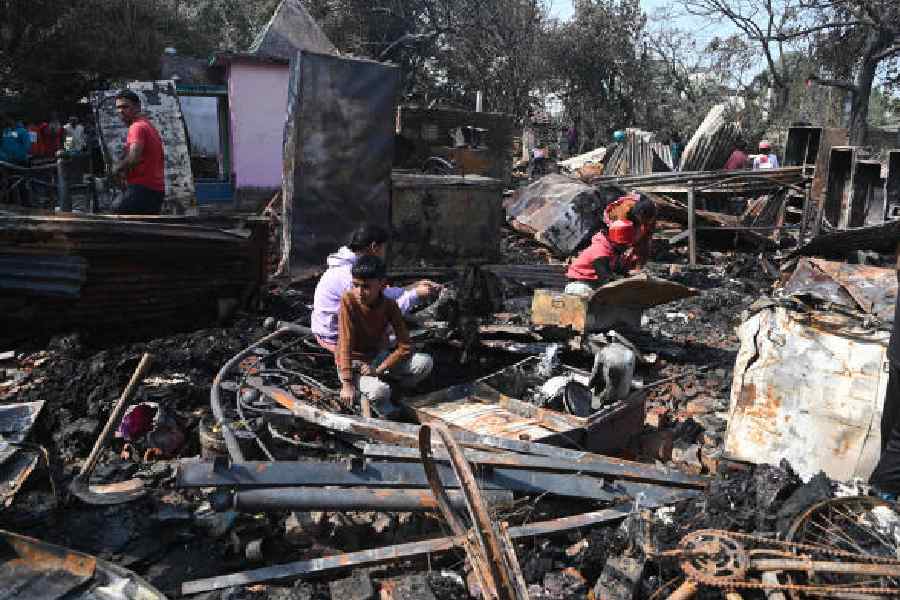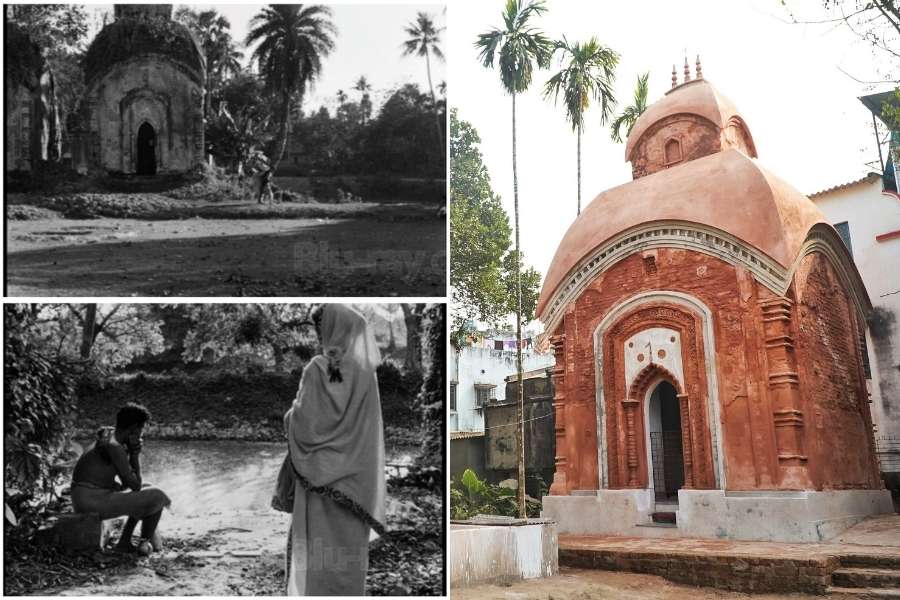
New Delhi, April 6: The BJP turned 36 today but it was one man, virtually a persona non grata in the party, who soaked up the birthday greetings.
Sanjay Joshi - a long-time rival of Narendra Modi - completed 54 today.
Thanks to the coincidence, the party's foundation day celebrations were overshadowed by a do that Joshi's throng of supporters had arranged for him in a park. Posters of Joshi lined the roads leading to the venue.
To underline the irony in the shared birthdays, his supporters affixed the posters with those on the foundation day with Modi's and BJP president Amit Shah's pictures along the route to the party's central headquarters. "Sanjaybhai is the third angle in the power triangle," gushed a backer.
The BJP workers who headed for Joshi's do came from as far as Hyderabad and Nagpur. Asked if their objective was to show up at the official foundation day event or Joshi's birthday party, one of them from Nagpur said: "Of course, we came to pay our respects to Sanjaybhai."
The party worker said the foundation day was being observed everywhere, in the state capitals and in district headquarters. "I could have easily gone to the one in Nagpur. But I didn't because Sanjaybhai is our messiah. Nobody in the BJP offices ever hears us out. Maybe being in power has made our leaders deaf to the workers. So if I have a problem, I approach Sanjaybhai. He calls whoever has to be called and my work gets done."
In the Modi-Shah regime, Joshi, for all practical purposes, is a castaway after his long and acrimonious relationship with the Prime Minister that goes back to the days when they worked together in the party organisation in Gujarat.
The flashpoints erupted twice: once when Joshi used his proximity to Sangh bosses to get Modi out of Gandhinagar after Keshubhai Patel was reinstated as Gujarat chief minister a second time after a spell of dissidence. The second was when Modi booted Joshi out after becoming the chief minister in 2002.
"Joshi is not a (BJP) member," stressed a spokesperson, quickly amending the statement to say, "What I mean is he does not have organisational responsibilities or a designation."
Joshi's Twitter page - handled by Ravi Tiwari, a former TCS employee - carried a handle, "Sanjay Vinayak Joshi@BJPSanjayJoshi". His first tweet today was not on his birthday but on the BJP's foundation day with the message that every worker should renew his/her commitment to India's "inclusive development" and towards "fulfilling the organizational goals".
So, how does Joshi leverage his status as a persona non grata to get work done for his legion of adherents? "You don't know but almost every minister in the Modi cabinet is in touch with him," said a BJP worker from Ahmedabad, who was among those present. "He calls them and they oblige."
The exaggerated statement had a core of truth. In 2015, a similar felicitation had ended in a notice served by the BJP to central ministers Sanjeev Kumar Balyan and Sarbananda Sonowal, seeking an explanation for why they "allowed" their pictures to appear on posters greeting Joshi.
While Balyan and Sonowal - the BJP's chief ministerial candidate in Assam - got away lightly, a third person, Nitin Sardare, was thrown out of the party. Sardare was central minister Shripad Yesso Naik's personal secretary and an old party hand from Delhi.
Sonowal's links with Joshi go back to 2011. That was when Joshi, forced out of the BJP in 2005, mainly at Modi's prod, was brought back into the party by Nitin Gadkari, then the president, and handed out an organisational mandate without a formal position. Joshi had played a role in weaning Sonowal from the Asom Gana Parishad.
Joshi, preoccupied today in accepting birthday wishes and cutting cakes, refused to tell the media who from the BJP had called to wish him. A staffer named two top ministers among those who did.
Modi acknowledged the BJP's birthday with a tweet that said: "From Kashmir to Kanyakumari, from Kutch to Arunachal Pradesh, people see BJP as a party to fulfill their dreams."
Shah's message at a gathering this morning was to ensure the success of the government's "flagship" programmes, including one to save the girl child, in every corner of the country.

